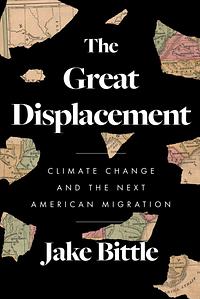Take a photo of a barcode or cover
challenging
dark
informative
reflective
medium-paced
3.5 rounded down.
A good intro book to the topic. The book seemed to want to discuss systematic failures - racism, neoliberalism, etc, but never really went into depth. Presumably this was to appear apolitical and to appeal to a wider audience? It was nice to see the argument made for housing as a human right, but also laughable that any solution would absolutely require corporate benevolence
A good intro book to the topic. The book seemed to want to discuss systematic failures - racism, neoliberalism, etc, but never really went into depth. Presumably this was to appear apolitical and to appeal to a wider audience? It was nice to see the argument made for housing as a human right, but also laughable that any solution would absolutely require corporate benevolence
if the first six chapters don't terrify you, the last two certainly will...
really hoping the world can come together to fix these problems.
p.s. if you can help it, don't buy a home in a climate-vulnerable area
really hoping the world can come together to fix these problems.
p.s. if you can help it, don't buy a home in a climate-vulnerable area
A read that aptly describes the some of the current migration patterns and certainly outlines what is to come. Prior to reading this work, I have been seeing migration due to climate change as a future event, but it has been happening for years. The incoming crisis will only expedite these trends. Excellent work should be ready by all city planners and government officials.
challenging
dark
informative
sad
slow-paced
Focuses mostly on climate migration in the United States, how U.S. policies are affecting people’s livelihoods and what insurance companies are doing to keep themselves in the black.
It’s stark and unflinching in the discussion around where our world is at and the cost of climate change, whether that costs is financial, cultural or in total fatalities. Great mixture of anecdotes from people who have been affected and the stark reality of a changing climate.
It’s stark and unflinching in the discussion around where our world is at and the cost of climate change, whether that costs is financial, cultural or in total fatalities. Great mixture of anecdotes from people who have been affected and the stark reality of a changing climate.
read for nonfiction book club: https://www.youtube.com/watch?v=Pvsu3zYwsEk
I thought the author did a great job to explain how some natural disasters spread or impacted big areas. The book is broken down into about 6 manageable sections, but with a repetition of things like insurance challenges to really convey a clear pattern. I also thought it was interesting that this climate change book does not really even attempt to talk about preventing climate change. It really focuses on how we are already making large scale adaptations to our changing world.
Interesting, but not a huge fan of the personal stories structure. Main takeaway is that the people who will be screwed over most by climate change are those who have historically been screwed over when it comes to housing, income, access to public funds, and government relief; cut along lines of race and income. Once again, buy land north of the Mason-Dixon line.
challenging
informative
reflective
medium-paced



